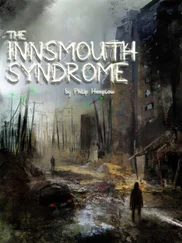“I was thinking too,” I say, not to Bob, but to Max. “You know, we’ve not only got a lot of toxic-abused children, overdosed on sodium 24, thanks to Van Dorn’s hapless experiment”—blame Van Dorn for now—“who’ve been knocked back to a cortical deficit, a pre-linguistic level like a bunch of chimps and are going to need all the help Father Smith and the rest of us can give them. I think it would also be a good place to transfer the euthanasic candidates and quarantined patients from the Qualitarian Center.”
Max rolls his eyes. Things are moving too fast. It’s all right for resource persons to fall out in group, stage mock warfare. But this! For Christ’s sake, Doctor, Max is saying, eyes rolled back, you’re pushing him too far.
“I for one,” says Max, switching to his nice-cop-versus-mean cop voice, “don’t think Dr. Comeaux should take that to mean you’re suggesting the transfer of all infants who are candidates for pedeuthanasia for one reason or another — hopeless retardation, Down’s syndrome, AIDS infants, status epilepticus, gross irreparable malformations, and suchlike — who have no chance for a life of any sort of acceptable quality — you’re not suggesting that they too should be transferred from the center to the hospice?”
“That’s what I meant. The hospice will take them all.”
Bob Comeaux has recovered sufficient footing to lever himself away from the doorjamb and face us both.
“You’re talking about violating the law of the land, gentlemen,” he says quietly. “D oe v. Dade, the landmark case decided by the U.S. Supreme Court which decreed, with solid scientific evidence, that the human infant does not achieve personhood until eighteen months.”
Max’s eyes are in his eyebrows. If his junior resource person insists on screwing up, he’s on his own.
“Not only that,” I go on in the same sociable tone, non compos but not hostile either, “we want all the so-called pre-personhood infants at St. Margaret’s by next week, plus all the terminal cases of any age, including adult AIDS patients who’ve been quarantined — plus your nursing staff until we can get organized.”
Why am I saying all this? Father Smith is a loony and can’t even take care of himself.
“Shit, Max!” Bob Comeaux, now altogether himself, collected in his anger, has squared off with Max. “He’s talking about shooting down the entire Qualitarian program in this area. No way.”
Max now, dropping group voice: this is serious. “Tom, we don’t want to get into a legal hassle. It is, after all, the law of the land.”
“Max, the law of the land does not require gereuthanasia of the old or pedeuthanasia of pre-personhood infants. It only permits it under certain circumstances.
“I know, but—” says Max.
Group falls silent.
“No way,” says Bob Comeaux softly.
“Very well,” I say, picking up the photos and Lucy’s printouts from NIH’s mainframe. “I’ll be going.”
“What you got there?” asks Bob Comeaux quickly, eyes tracking the printouts like a Macintosh mouse.
“You know what these are, Bob.”
“What you going to do with them?”
“Return them to Dr. Lipscomb. They’re her property. She in turn will be obliged to notify NIH, ACMUI, and the Justice Department.”
“But we haven’t signed you out!” exclaims Bob Comeaux, actually pointing to the torn paper in my student wastebasket.
“In that case I’ll just hand them to Warden Elmo Jenkins, who is familiar with the case and will pass them along to Lucy.”
“Ah me,” muses Max.
I’m halfway to the door. “Hold it, old son,” says Bob Comeaux, uttering, in a sense, a laugh, and clapping a hand on my shoulder. “As L.B.J. and Isaiah used to say, Let us reason together.” And, to tell the truth, he looks a bit like L.B.J. back at the ranch, in his Texas hat, smiling, big-nosed, pressing the flesh.
2. ELLEN LOST OUT in Fresno. Cut off from Van Dorn and heavy sodium, she got eliminated in Mixed Doubles and came limping home.
We were all glad to see her. She wouldn’t talk to anybody but Hudeen. They exchanged a few murmured syllables which no one else could understand.
The children, out of school, stood around either picking at each other or moony and cross as children are when something is wrong. But Chandra is good with them, playing six-hour games of Monopoly. Between times they’re on the floor in front of the stereo-V, as motionless as battlefield casualties, eyes glazed: back to six hours of Scooby Doo and He-Man.
My practice is almost nil. People are either not depressed, anxious, or guilty, or if they are, they’re not seeing me.
I begin dropping by the Little Napoleon and having a friendly shooter of Early Times with Leroy Ledbetter.
Ellen is puzzled, distant, and mostly silent. At night we lie in our convent beds watching Carson without laughing and reruns of M*A*S*H and Lifestyles of the Rich and Famous.
What to do?
Leroy makes his usual suggestion, after one of his all-but-invisible knockings-back of a shot glass as part of the motion of wiping the bar and leaning over to tell me.
“Why don’t y’all take my Bluebird and go down to Disney World? Y’all will like it. There is something for all ages.”
I thank him as usual, hardly listening, since Disney World is the last place on earth I would choose to go.
But as I look at the moony, fretful children and puzzled silent Ellen lying in the silvery glare of the tube watching cockney Robin Leach and Carson and Hawkeye between her toes with exactly the same dreamy, unfocused expression, the thought occurs to me: Why not?
As it turns out, it is a splendid idea, and Leroy is right: Disney World is for all ages.
We find ourselves in the Bluebird parked in Fort Wilderness Resort next to the Magic Kingdom. Fort Wilderness is a pleasant wooded campground with hookups for motor homes. Our campsite is on Jack Rabbit Run.
The Bluebird is a marvel. It cost Leroy over a hundred thousand dollars secondhand, and he’s spent another ten on it. He lives in a room over the Little Napoleon. It is like giving me his house.
We go spinning along the Gulf Coast in the fine October light as easily as driving a Corvette, but sitting high and silent as astronauts. The children are enchanted. They spend days exploring the shiplike craft, opening bunks, taking showers, folding out tables and dinettes, working the sound system and control panel and the map locator, which shows us as a bright dot creeping along I-75.
The four-speaker stereo picks up the Pastoral symphony. We’re a boat humming along Beethoven’s brook. I would be happy, but Ellen, in the co-pilot seat, is still abstracted, brows knitted in puzzlement. I take a nip of Early Times both in celebration and for worry.
Ellen gets better the second night out in a KOA campground in the pine barrens.
While I’m hooking up, figuring out where the plugs go, Ellen disappears.
Oh, my God. But the kids are not worried. They’ve already found the playground. Neighbors come ambling over, offering a beer, inspecting the Bluebird. They think Meg and Tom are my grandchildren. They show me pictures of theirs. The American road is designed for children and grandparents. Oh, my God, where is Ellen? Have a drink. I have a drink, three drinks. Nobody else is worried. Neighbors assure me she has gone to the commissary.
She has. She’s back with groceries. No more Big Macs and Popeyes chicken.
Now in the violet October light after sunset, the air fragrant with briquet and mesquite smoke perfumed by lighter fluid, there is Ellen at the tiny galley cooking red beans and rice, not my favorite boudin sausage but Jimmy Dean sausage and — humming!
Читать дальше












